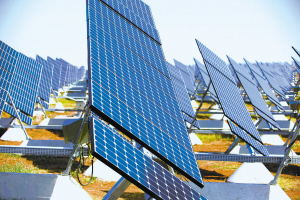 Distributed photovoltaic power generation is currently a major focus in China's renewable energy sector. While photovoltaic leasing has potential for domestic use, its large-scale adoption remains challenging in the near term. The current subsidy framework in China primarily relies on Feed-in Tariff (FIT) mechanisms and upcoming distributed power subsidies, but lacks supportive policies such as Investment Tax Credits (ITC) or accelerated depreciation, which are common in other markets. Additionally, the existing electricity pricing system, which is negatively correlated with both sales price and solar irradiance, does not support the viability of leasing models.
Studies show that the economic feasibility of PV leasing in China heavily depends on government subsidies. However, issues like uncertainty over subsidy amounts, fluctuating subsidy timelines, and delayed payments have significantly undermined investor confidence. As a result, the growth of the leasing model is slow and highly dependent on policy stability.
Looking ahead, distributed photovoltaic projects are expected to be the core of future development. However, market-oriented projects face significant hurdles. These projects rely on administrative support and subsidies to gain momentum, but long-term returns remain unclear. Complicated approval procedures, challenges in grid integration, and lack of clear financial incentives continue to deter private investment.
Residential rooftops are a key target for marketization, but residential electricity rates are typically lower than industrial and commercial rates, making it difficult to achieve self-consumption during weekdays. To meet this demand, additional energy storage solutions are required, yet the likelihood of government support for such technologies is low. Therefore, the success of market-oriented projects will largely depend on improvements in grid connection pricing and more favorable regulatory frameworks.
The introduction of new supporting policies for distributed systems could create significant investment opportunities. Currently, many challenges exist in the implementation of these projects. The next round of policies aims to clarify operational rules, reduce uncertainties for project owners, and boost investor confidence. Key unresolved issues include shifting from an approval-based to a filing-based project review system, setting clear timelines for subsidy disbursement, and securing funding sources for renewable energy tariffs. If these policies exceed expectations or if undisclosed measures are introduced, they could lead to new transactional opportunities in the solar industry.
In the short term, the release of the "Implementation Measures for Distributed Photovoltaic Power Demonstration Zones and Standards for Electricity Price Subsidy" before ** is closely watched by industry participants. This document is expected to provide much-needed clarity and direction for the future of the domestic solar market.
Distributed photovoltaic power generation is currently a major focus in China's renewable energy sector. While photovoltaic leasing has potential for domestic use, its large-scale adoption remains challenging in the near term. The current subsidy framework in China primarily relies on Feed-in Tariff (FIT) mechanisms and upcoming distributed power subsidies, but lacks supportive policies such as Investment Tax Credits (ITC) or accelerated depreciation, which are common in other markets. Additionally, the existing electricity pricing system, which is negatively correlated with both sales price and solar irradiance, does not support the viability of leasing models.
Studies show that the economic feasibility of PV leasing in China heavily depends on government subsidies. However, issues like uncertainty over subsidy amounts, fluctuating subsidy timelines, and delayed payments have significantly undermined investor confidence. As a result, the growth of the leasing model is slow and highly dependent on policy stability.
Looking ahead, distributed photovoltaic projects are expected to be the core of future development. However, market-oriented projects face significant hurdles. These projects rely on administrative support and subsidies to gain momentum, but long-term returns remain unclear. Complicated approval procedures, challenges in grid integration, and lack of clear financial incentives continue to deter private investment.
Residential rooftops are a key target for marketization, but residential electricity rates are typically lower than industrial and commercial rates, making it difficult to achieve self-consumption during weekdays. To meet this demand, additional energy storage solutions are required, yet the likelihood of government support for such technologies is low. Therefore, the success of market-oriented projects will largely depend on improvements in grid connection pricing and more favorable regulatory frameworks.
The introduction of new supporting policies for distributed systems could create significant investment opportunities. Currently, many challenges exist in the implementation of these projects. The next round of policies aims to clarify operational rules, reduce uncertainties for project owners, and boost investor confidence. Key unresolved issues include shifting from an approval-based to a filing-based project review system, setting clear timelines for subsidy disbursement, and securing funding sources for renewable energy tariffs. If these policies exceed expectations or if undisclosed measures are introduced, they could lead to new transactional opportunities in the solar industry.
In the short term, the release of the "Implementation Measures for Distributed Photovoltaic Power Demonstration Zones and Standards for Electricity Price Subsidy" before ** is closely watched by industry participants. This document is expected to provide much-needed clarity and direction for the future of the domestic solar market.Our Chopper is good in quality and competitive in price. We are manufacturer and supplier of Chopper following your specific requirement. We are looking forward to your E-mail and establishing cooperative relationship with you! We would provide professional Chopper with good services for you!
Chopper Knife, Agricultural Chopper, Straw Chopper
NINGBO BORINE MACHINERY CO.,LTD , https://www.borine-agroparts.com